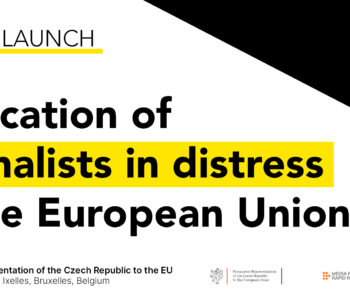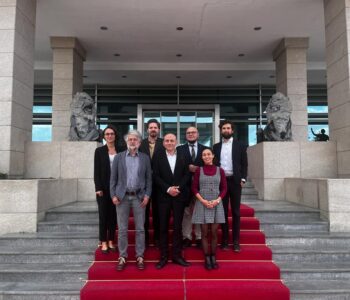
Preventive wiretaps: A violation of the right of defence?
Preventive wiretaps: A violation of the right of defence?
After the book by former journalists Bisignani and Madron, which talks about 400 politicians and journalists controlled by the services, the alarm came from former MP Marco Cappato, who fears being under surveillance. The government denies, but the debate is about the law that regulates preventive wiretapping rather than the specific case.
by Paola Rosà
“I absolutely rule out that there is or has been any wiretapping activity against MP Marco Cappato”. Thus, a few hours after the public alarm raised by the treasurer of the association Luca Coscioni, a statement from the undersecretary to the Presidency of the Council Alfredo Mantovano denied on behalf of the government the rumors about an alleged permanent control operation against Cappato, candidate in the Senate by-elections in Monza in October. Similarly, with a much more detailed statement which arrived very quickly, the undersecretary had responded in May to the allegations contained in the book by Luigi Bisignani and Paolo Madron, “The powerful at the time of Giorgia”, published by Chiarelettere, in which there was talk of 400 unauthorised interceptions against politicians, journalists, former members of the government, and members of the opposition.
Allegations and denials
“I have never authorised, as the delegated Authority for the security of the Republic, any form of interception of political representatives or journalists”, wrote Mantovano at the end of May , defining the scenario envisaged by the book as “very concerning”.
These two sensational cases stirred up the political debate for a few days in recent months, but did not lead to complaints or requests for corrections: it had happened in May, with the advertising launch of the book by Bisignani and Madron, and it also happened at the end of August, with the video posted on Twitter by Marco Cappato, then shared by Ansa and by various newspapers, for a total of almost half a million views.
Cappato’s complaint was detailed: “I formally ask the Prime Minister to verify whether the information that reached me anonymously that from February 2023 I am allegedly subjected to ‘computer tapping’ of the telephone (permanent and total interception) with state trojans and that wiretaps have been underway in my usual places of work and life since March of this year. The monitoring would be carried out by the Information and Security Agency – Aisi – at the request of the Information Department for the Security of the Republic – Dis – Authority delegated by the Presidency of the Council of Ministers for any cases of contesting the crime of subversive association and any crimes found during the investigation”.
It is not yet known whether the leak that Cappato says he trusts blindly has been artfully manipulated, whether the institutions are hiding something or whether these are unfounded statements. Even in the case of the 400 alleged wiretaps against politicians and journalists, the only comments were by Matteo Renzi, former head of government, and Vittorio di Trapani, president of the Fnsi. “It is urgent to clarify the matter”, was the request of the president of the journalists’ union. “It would be an unprecedented scandal”, Renzi wrote in Il Riformista.
Preventive interceptions by the police and secret services
The interceptions mentioned by Bisignani and Madron are be the so-called preventive interceptions, legal for the police and secret services as long as they are authorised in advance by a magistrate. These wiretaps are different from those targeting suspects: the Criminal Procedure Code establishes the differences from procedural wiretaps, which allow the continuation of investigations (articles 266-271 of the Criminal Procedure Code) or facilitate the search for fugitives (art. 295, co. 3, 3-bis and 3-ter c.p.p.). On the other hand, preventive ones, whether police or intelligence, have public security functions and serve to understand whether there are potential risks for the stability of the country’s institutional and economic system.
The mechanism for this type of wiretapping, carried out by the services delegated by the President of the Council of Ministers and subject to authorisation by the Attorney General at the Court of Appeal of Rome, is simple: the head of government can delegate, under their political responsibility, the directors of the security information services to carry out interceptions of communications or conversations between those present, even if these take place in the home, in a private place of residence, or in their appurtenances, including the acquisition of external data (the so-called metadata) relating to telephone and electronic communications and the acquisition of any other useful information. Thus the Code of Criminal Procedure integrated by other provisions contained in the Pisanu decree of 2005, in the Code of anti-mafia laws of 2011, and in the Budget Law of the Meloni government of December 2022.
Also on the Carabinieri website, managed by the Ministry of Defence, there is a precise definition: “It is a tool that allows to detect live and with the maximum level of relevance the level of danger both of the clans operating in a territory and the danger of individual subjects. Regardless of the possibility of developing judicial investigations arising from the elements acquired, they can indicate the priorities on which to intervene with targeted preventive investigations”.
The right to defence and to be informed
But as Leonardo Filippi, professor emeritus of Criminal Procedure at the University of Cagliari, writes in the online magazine Penale Diritto e Procedura , the changes recently introduced by the government increasingly lead to the question to what extent our Constitution tolerates “a limitation of fundamental freedoms for the purposes of crime prevention without even subsequent information to the person who suffers it”. The question is all the more justified by the fact that the recent changes do not indicate “any serious crime to be prevented, therefore an authorisation for any crime would be legitimate, even trivial or considered inoffensive, as long as the operations are considered indispensable for carrying out prevention activities” of the secret services. Instead, argues Filippi, “it is left to the Attorney General at the Court of Appeal of Rome to make a generic assessment of the indispensability of the prevention activity for the purposes of carrying out the prevention activities delegated to the security information services: if they consider them indispensable, they authorise, with their own reasoned decree, the interceptions”.
The change compared to the past is not insignificant: if preventive interceptions were previously approved when the Public Prosecutor believed there were “investigative elements” that justified the prevention activity, now the authorisation must be based exclusively on the fact that such interceptions are “essential for carrying out the activities delegated” to the services themselves.
A critical element of preventive interceptions lies, according to prof. Filippi, in the total absence of the right of defence, as there is no formal suspect or charges. Filippi writes: “Given the natural secrecy of preventive activities, the procedure for verifying the regularity of operations and subsequent destruction is not assisted by any guarantee to protect the person subjected to ante delictum collections, who is, ordinarily, destined to remain unaware of the activities carried out against them.
And he continues: “However, the targets of interception and therefore of the limitation of the secrecy of their communications or conversations would have the right at least to be informed of the capture of their dialogues, once the prevention needs have been satisfied”.
All the more disturbing, then, is the thought, fuelled by what is written in Bisignani and Madron’s book, that in recent years such interceptions have expanded and have included newspaper editors, MPs, and members of the opposition.
Unconfirmed rumors from Copasir
At the moment there are no complaints or requests for corrections on the book, which in any case has undergone some television censorship: at the beginning of June Mediaset had cancelled two appearances by Bisignani in Nicola Porro’s programme “Quarta Repubblica”, and in “Stasera Italia”, the talk hosted by Barbara Palombelli, communicating the cancellation a few hours before the broadcast.
On the other hand, there could be a judicial initiative against Bisignani by Tim, which at the beginning of July announced that it had given a mandate to its lawyers to proceed in court to protect the actions of its employees and shareholders. In fact, on 2 July, Bisignani returned to the subject of wiretapping in an article in il Tempo (“The 400 intercepted without their knowledge”), and had said that, in a hearing at Copasir (Parliamentary Committee for Security) on 20 June, Tim’s head of security and public affairs Eugenio Santagata confirmed that the activities of the former telephone monopolist would include not only carrying out interceptions useful for national security, but also extending them, if the authority so considered, to ordinary citizens, with what is commonly defined as a “trawl” system.
Here Bisignani quotes his co-author Madron: “According to what Madron was able to ascertain from some members of the Parliamentary Committee for Security (and the Secret Services) who requested anonymity”, the manager would have reported that among the institutional activities of his group there is the possibility of listening to the voice and airwaves of unaware Italian citizens. With the possibility, depending on the interest of the conversations captured, to extend the listening to other users too: the so-called trawl system. With this Bisignani alleges that under the grounds of national security there would be a risk of violating everyone’s privacy.
The hearings at Copasir and a parallel investigation by the Rome prosecutor’s office are at the moment the only concrete consequence of Bisignani and Madron’s book; the hearings are secret, and everything Bisignani writes in retrospect are conjectures which, although denied by the government and Tim, remain debated on the political scene. For the rest, there are no other complaints or requests for rectification affecting the book, which over the summer had some success with the public, including at the Trento Economics festival and in presentations in Capalbio, Avellino, Rome, the Vicenza Golf Club, and the Kalè bathing establishment in Castellaneta Marina in the province of Taranto.
This article was coordinated by the Media Freedom Rapid Response (MFRR), a Europe-wide mechanism which tracks, monitors and responds to violations of press and media freedom in EU Member States and candidate countries.









